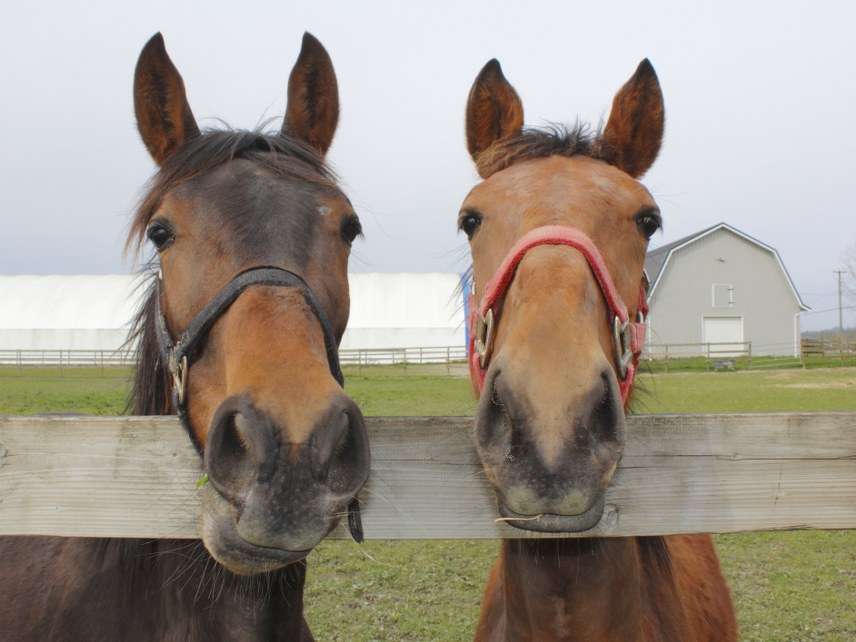Upstate N.Y. Town Defeats Anti-Farming Bill
A dispute with neighbor spurred a measure to crack down on smaller properties. But the town's large agricultural community fought back.

Earlier this month, the town of Fort Ann, N.Y. was embroiled in controversy, the result of a local council member's failed attempt to pass a law that could have seriously curtailed small-scale farming in the town. Residents of the agricultural community turned out in droves to fight the proposal, which appears to have grown largely out of an ongoing personal dispute the councilor had with a neighbor.
According to public records in Fort Ann, Councilwoman Deborah Witherell first proposed the Ordinance Providing for the Regulation of Small Farm Operations in the Town of Fort Ann at an October 10 board meeting. It specifically singled out the smallest farmers in this agricultural community. Its language appears to be heavily biased toward aesthetic concerns. It sought to restrict livestock to properties larger than one acre. It would have created burdensome requirements for providing "adequate shelter" and corral space for livestock. It would have required "no less than daily" cleaning of all barns and shelters. It created new requirements for site plan approval. It would have imposed heavy fines of up to $3,000. And it would have expressly superseded all prior laws.
That includes, at least in part, the town's right-to-farm law, which the council adopted in 2007.
In New York State, many cities or towns have their own right-to-farm laws. The purpose of the law in Fort Ann, which bills itself as "an agricultural community," is clear.
"In order to maintain a viable farming economy in Fort Ann," reads, in part, the purpose and intent of the law, "it is necessary to limit the circumstances under which farming may be deemed to be a nuisance and to allow agricultural practices inherent to and necessary for the business of farming to proceed and be undertaken free of unreasonable and unwarranted interference or restriction."
The public hearing to discuss the proposed ordinance took place on Dec. 11. Callie Ginter, a reporter with The Post-Star who covered last week's board meeting and the events leading up to it, told me by phone this week that the hearing was contentious.
"The meeting was raw and real and people were passionate… and weren't going to hold back," Ginter says.
That reaction was predictable. In fact, one of Witherell's fellow board members predicted it.
"She realizes that people aren't going to be happy about this because Fort Ann is a farming community," reads a November 11 report by Fort Ann Council Supervisor Richard Moore, referring to Witherell and her proposal. "She has already been contacted by [a resident] that he is very upset about this. [He] asked Councilwoman Witherell if this came about because of one person specifically her neighbor. Councilwoman Witherell responded yes but she would be doing this regardless of whether it was a neighbor or not[.]"
When reached, neither Witherell nor Moore were willing to comment for this column.
The dispute between Witherell and her neighbor that spurred her to introduce the ordinance stems from claims earlier this year by the council member that manure on the neighbor's farm had likely contaminated her well with E. coli. She first sought to involve the New York State's Department of Environmental Conservation (DEC) in the matter. When the DEC balked at getting involved, Witherell sued the neighbor in civil court. The DEC then agreed over the summer to launch an investigation of the well contamination.
But the DEC investigation determined no further action was needed.
"DEC has been on-site multiple times regarding this complaint and no violations of the [state Environmental Conservation Law] have been documented," said the DEC in a statement emailed to me this week. "DEC will continue to monitor the situation and will act if a violation is documented."
While the story of the Fort Ann farming ordinance is a local one, it's also part of a larger story that's played out in cities in towns across the country, in which local lawmakers seek to use their position to advance their oftentimes-questionable judgment about the practices and merits of small-scale agriculture. It's also one on which I've focused many times.
The Fort Ann ordinance compares favorably to other awful crackdowns on small-scale agriculture and gardening around the country. There are so many cases around the country—from bans on gardening and raising egg-laying hens and tiny goats to an ongoing lawsuit against the city of Miami Shores, Fla. over its gardening ban, which I wrote about here recently—that I was able to fill up a whole chapter of my recent book, Biting the Hands that Feed Us: How Fewer, Smarter Laws Would Make Our Food System More Sustainable, with examples of these lousy local restrictions.
Residents of Fort Ann are fortunate that they spoke up and fought back against what would have been a terrible deal for the smallest members of the town's agricultural community. Other communities around the country have not been so fortunate.
Local legislative efforts to thwart farming and gardening are quite real. I hope more communities take these threats seriously and respond to these threats like the residents of Fort Ann did this month.


Show Comments (29)